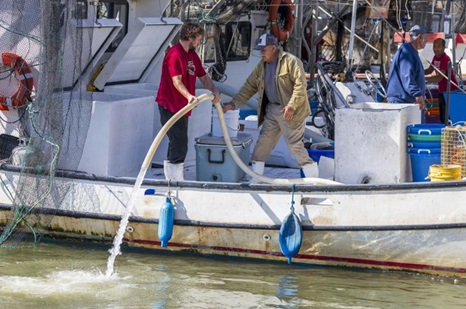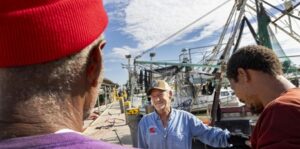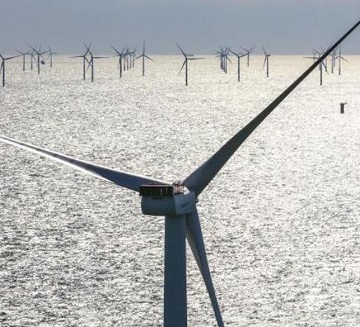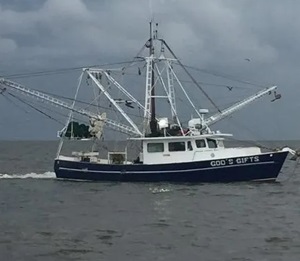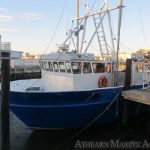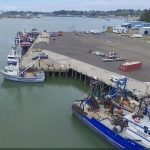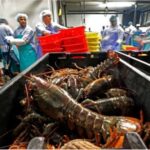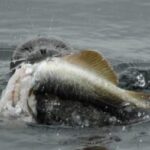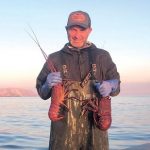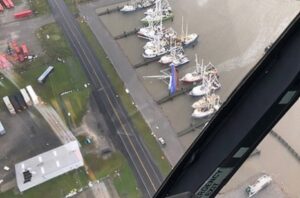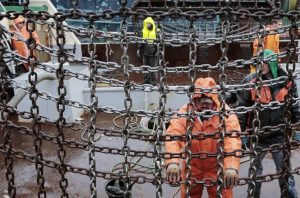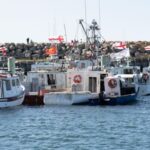Tag Archives: Gulf of Mexico
Google Maps changes Gulf of Mexico to Gulf of America
 Following the lead of the Geographic Names Information System, Google has changed the Gulf of Mexico to the Gulf of America on Google Maps. Google announced two weeks ago that it would change the name of the body of water between Mexico and Florida when GNIS made the change, it would follow suit. The label will differ depending on where a user is located. For people in the U.S., the map will read “Gulf of America.” Users in Mexico will see “Gulf of Mexico.” While people everywhere else will see “Gulf of Mexico (Gulf of America).” Video, more, >>CLICK TO READ<< 07:07
Following the lead of the Geographic Names Information System, Google has changed the Gulf of Mexico to the Gulf of America on Google Maps. Google announced two weeks ago that it would change the name of the body of water between Mexico and Florida when GNIS made the change, it would follow suit. The label will differ depending on where a user is located. For people in the U.S., the map will read “Gulf of America.” Users in Mexico will see “Gulf of Mexico.” While people everywhere else will see “Gulf of Mexico (Gulf of America).” Video, more, >>CLICK TO READ<< 07:07
Baton Rouge restaurants found serving mislabeled imported shrimp — and charging more
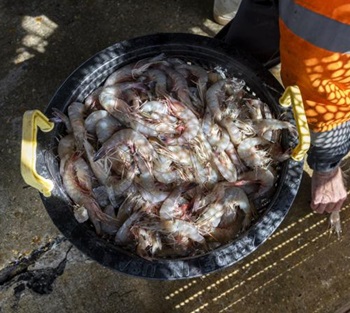 Following a pattern of mislabeling seafood, new genetic testing found that nearly a third of randomly selected Baton Rouge restaurants were advertising imported shrimp as Gulf of Mexico catch. For years, shrimpers and advocates have been raising alarm over cheap imports straining the declining industry. Around 90 percent of shrimp sold in the United States is farm-raised and imported, according to the Louisiana Shrimp Association. SeaD Consulting, a company that has been using rapid genetic testing across the region, sampled menu items from 24 restaurants around Baton Rouge and found that seven were promoting imported shrimp as local. “This genetic testing is a good sign to back up what we’ve been saying all this time,” Acy Cooper, the president of the Louisiana Shrimp Association, said. “They’re selling this stuff off the backs of Louisiana fishermen.” more, >>CLICK TO READ<< 06:44
Following a pattern of mislabeling seafood, new genetic testing found that nearly a third of randomly selected Baton Rouge restaurants were advertising imported shrimp as Gulf of Mexico catch. For years, shrimpers and advocates have been raising alarm over cheap imports straining the declining industry. Around 90 percent of shrimp sold in the United States is farm-raised and imported, according to the Louisiana Shrimp Association. SeaD Consulting, a company that has been using rapid genetic testing across the region, sampled menu items from 24 restaurants around Baton Rouge and found that seven were promoting imported shrimp as local. “This genetic testing is a good sign to back up what we’ve been saying all this time,” Acy Cooper, the president of the Louisiana Shrimp Association, said. “They’re selling this stuff off the backs of Louisiana fishermen.” more, >>CLICK TO READ<< 06:44
Coast Guard investigating death on fishing boat
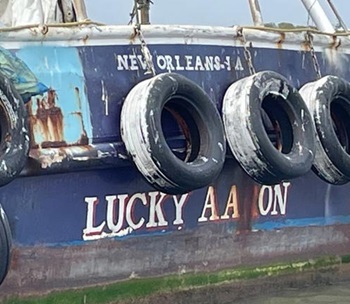 The US Coast Guard is investigating the death of a 61-year-old man linked to an injury onboard a fishing boat in the Gulf of Mexico, and Justice of the Peace Joseph Guillory II says the crew reports the man became entangled in some fishing equipment. The Coast Guard spokesman tell KFDM/Fox 4 News Coast Guard Sector Houston-Galveston requested a medevac early Sunday morning from the fishing vessel “Lucky Aaron” about 85 nautical miles southeast of Sabine Pass in Louisiana waters. There was a reported injury, according to the Coast Guard. The man was unconscious, and the crew couldn’t detect a pulse. The vessel was en route to Sabine Pass at 3:30 a.m. It arrived late Sunday morning. more, >>CLICK TO READ<< 06:29
The US Coast Guard is investigating the death of a 61-year-old man linked to an injury onboard a fishing boat in the Gulf of Mexico, and Justice of the Peace Joseph Guillory II says the crew reports the man became entangled in some fishing equipment. The Coast Guard spokesman tell KFDM/Fox 4 News Coast Guard Sector Houston-Galveston requested a medevac early Sunday morning from the fishing vessel “Lucky Aaron” about 85 nautical miles southeast of Sabine Pass in Louisiana waters. There was a reported injury, according to the Coast Guard. The man was unconscious, and the crew couldn’t detect a pulse. The vessel was en route to Sabine Pass at 3:30 a.m. It arrived late Sunday morning. more, >>CLICK TO READ<< 06:29
Rafael now a tropical storm: Any threat to Alabama?
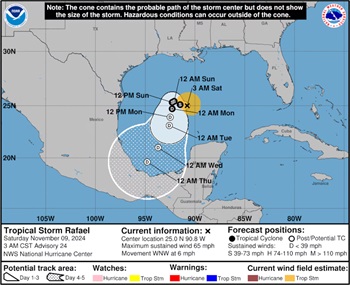 Rafael, a Category 3 hurricane just yesterday, has weakened rapidly to a tropical storm and had 65 mph winds on Saturday morning. The National Hurricane Center thinks the storm could drift southward over the Gulf of Mexico through the middle of next week. It could also continue to weaken and become a non-tropical system during that time. As of the last advisory, at 3 a.m. CST Saturday, Tropical Storm Rafael was located about 405 miles east of the mouth of the Rio Grande River and was moving to the west-northwest at 6 mph. more, >>CLICK TO READ<< 09:23
Rafael, a Category 3 hurricane just yesterday, has weakened rapidly to a tropical storm and had 65 mph winds on Saturday morning. The National Hurricane Center thinks the storm could drift southward over the Gulf of Mexico through the middle of next week. It could also continue to weaken and become a non-tropical system during that time. As of the last advisory, at 3 a.m. CST Saturday, Tropical Storm Rafael was located about 405 miles east of the mouth of the Rio Grande River and was moving to the west-northwest at 6 mph. more, >>CLICK TO READ<< 09:23
Charting a course toward seafood independence for Alaska’s vulnerable food systems
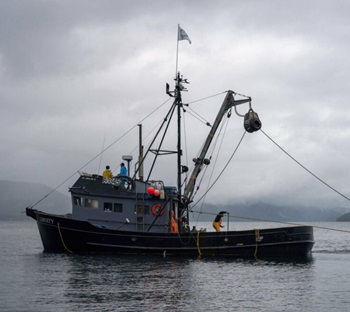 As a commercial fisherman based in Sitka and the executive director of the Alaska Longline Fishermen’s Association (ALFA), I’ve spent decades navigating Alaska’s challenging waters and the headwinds facing our fishing communities. Alaska’s coastal residents are resilient, but they are up against a new magnitude of challenges. The loss of fishing access and community-based processing capacity, along with a dearth of local markets for seafood, are straining once vibrant fishing economies up and down our coastline. I recently contributed to a fisheries access report commissioned by the Alaska Sustainable Fisheries Trust (ASFT), which highlights the outmigration of fishing access in Southeast Alaska. Communities with historically robust local fishing fleets now see few active vessels based in town. This trend is acute in communities such as Kake, which has lost its local processor — and with it, a viable market for resident fishermen. Through interviews and in-person engagement, ASFT’s report found that a common concern among fishermen was the loss of a local fish buyer. When this happens, resident fishermen often sell their permits or abandon fishing altogether. more, >>CLICK TO READ<< By Linda Behnken 12:05
As a commercial fisherman based in Sitka and the executive director of the Alaska Longline Fishermen’s Association (ALFA), I’ve spent decades navigating Alaska’s challenging waters and the headwinds facing our fishing communities. Alaska’s coastal residents are resilient, but they are up against a new magnitude of challenges. The loss of fishing access and community-based processing capacity, along with a dearth of local markets for seafood, are straining once vibrant fishing economies up and down our coastline. I recently contributed to a fisheries access report commissioned by the Alaska Sustainable Fisheries Trust (ASFT), which highlights the outmigration of fishing access in Southeast Alaska. Communities with historically robust local fishing fleets now see few active vessels based in town. This trend is acute in communities such as Kake, which has lost its local processor — and with it, a viable market for resident fishermen. Through interviews and in-person engagement, ASFT’s report found that a common concern among fishermen was the loss of a local fish buyer. When this happens, resident fishermen often sell their permits or abandon fishing altogether. more, >>CLICK TO READ<< By Linda Behnken 12:05
Fewer fish spills reported after Louisiana pushes pogy boats from coast
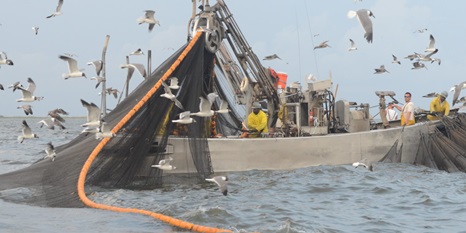 In 2022, a menhaden fishing ship and its net boats spilled about a million fish off the Louisiana coast, leaving the floating mass to rot in the summer sun. A few months later, another spill blanketed Louisiana beaches with an estimated 850,000 dead fish. The two incidents pushed the state’s leaders to enact the first significant restrictions on the Gulf of Mexico’s largest but least-regulated fishery. Starting this year, catchers of menhaden, a foot-long fish with a host of industrial uses, must stay a half mile from much of the Louisiana coast and a mile from three ecologically sensitive areas. But the menhaden industry says better nets rather than bigger buffers have played a far bigger role in reducing spills. Photos, more, >>CLICK TO READ<< 09:44
In 2022, a menhaden fishing ship and its net boats spilled about a million fish off the Louisiana coast, leaving the floating mass to rot in the summer sun. A few months later, another spill blanketed Louisiana beaches with an estimated 850,000 dead fish. The two incidents pushed the state’s leaders to enact the first significant restrictions on the Gulf of Mexico’s largest but least-regulated fishery. Starting this year, catchers of menhaden, a foot-long fish with a host of industrial uses, must stay a half mile from much of the Louisiana coast and a mile from three ecologically sensitive areas. But the menhaden industry says better nets rather than bigger buffers have played a far bigger role in reducing spills. Photos, more, >>CLICK TO READ<< 09:44
Election Jitters, Industry Headwinds Undermine Biden’s Final Offshore Wind Auction
 A U.S. auction of offshore wind development rights in the Gulf of Maine on Tuesday drew bids for only half of the eight offered leases, for a total of just $21.9 million in high bids, in the latest sign of deep industry malaise. The sale was a stark display of the lack of industry appetite for new investment after a year of high-profile setbacks that include canceled projects, two shelved lease sales in Oregon and the Gulf of Mexico and a construction accident at the nation’s first major offshore wind project. The auction was the last before President Joe Biden, a Democrat, leaves office in January. more, >>CLICK TO READ<< 07:25
A U.S. auction of offshore wind development rights in the Gulf of Maine on Tuesday drew bids for only half of the eight offered leases, for a total of just $21.9 million in high bids, in the latest sign of deep industry malaise. The sale was a stark display of the lack of industry appetite for new investment after a year of high-profile setbacks that include canceled projects, two shelved lease sales in Oregon and the Gulf of Mexico and a construction accident at the nation’s first major offshore wind project. The auction was the last before President Joe Biden, a Democrat, leaves office in January. more, >>CLICK TO READ<< 07:25
Hurricane Milton carves a path of destruction across Florida; millions without power or water
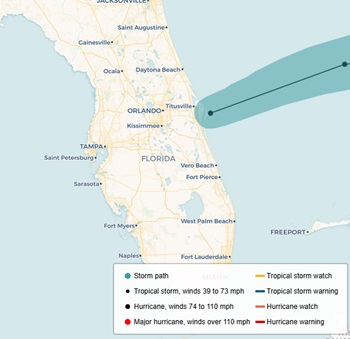 Millions of Floridians from coast to coast are assessing the overnight destruction left by Hurricane Milton, which made landfall at Siesta Key off Sarasota as a Category 3 storm at around 8:30 p.m. Wednesday, punched across the state and exited the east coast near Cape Canaveral before dawn Thursday. At least 2.6 million homes and businesses were without power, St. Petersburg residents without water, and major damage was done in the Tampa area, where flash flood warnings were still in effect Thursday. St. Petersburg residents also could no longer get water from their household taps because a water main break led the city to shut down service. St. Petersburg recorded over 16 inches of rain. Video, more, >>CLICK TO READ<< 06:50
Millions of Floridians from coast to coast are assessing the overnight destruction left by Hurricane Milton, which made landfall at Siesta Key off Sarasota as a Category 3 storm at around 8:30 p.m. Wednesday, punched across the state and exited the east coast near Cape Canaveral before dawn Thursday. At least 2.6 million homes and businesses were without power, St. Petersburg residents without water, and major damage was done in the Tampa area, where flash flood warnings were still in effect Thursday. St. Petersburg residents also could no longer get water from their household taps because a water main break led the city to shut down service. St. Petersburg recorded over 16 inches of rain. Video, more, >>CLICK TO READ<< 06:50
Milton remains an ‘extremely dangerous’ hurricane after weakening to Cat 4, forecasters warn
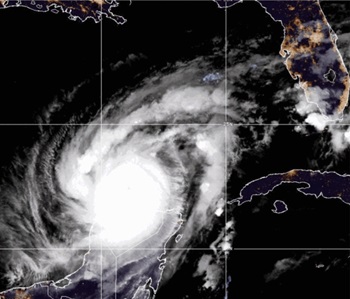 Hurricane Milton weakened slightly to a powerful Category 4 storm Tuesday morning while spiraling through the southern Gulf of Mexico and closer to Florida, according to the National Hurricane Center in Miami. Milton rapidly intensified from a tropical storm to a Category 5 hurricane on Monday, peaking with rare, sustained winds of 180 mph and becoming the strongest storm to ever form this late in the Atlantic season. Now, the hurricane is moving east-northeast at 12 mph with maximum sustained winds of 145 mph, NHC said in its latest update. However, forecasters warned that Milton’s change in strength doesn’t make it any less dangerous, adding that the storm will likely grow in size as it approaches Florida’s west coast and makes landfall Wednesday. more, >>CLICK TO READ<< 09:46
Hurricane Milton weakened slightly to a powerful Category 4 storm Tuesday morning while spiraling through the southern Gulf of Mexico and closer to Florida, according to the National Hurricane Center in Miami. Milton rapidly intensified from a tropical storm to a Category 5 hurricane on Monday, peaking with rare, sustained winds of 180 mph and becoming the strongest storm to ever form this late in the Atlantic season. Now, the hurricane is moving east-northeast at 12 mph with maximum sustained winds of 145 mph, NHC said in its latest update. However, forecasters warned that Milton’s change in strength doesn’t make it any less dangerous, adding that the storm will likely grow in size as it approaches Florida’s west coast and makes landfall Wednesday. more, >>CLICK TO READ<< 09:46
Hurricane Milton strengthens into Category 4 as Florida prepares for evacuations, storm surge
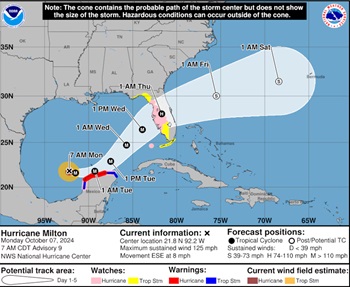 Milton rapidly strengthened into a Category 4 hurricane Monday on a path toward Florida population centers including Tampa and Orlando, threatening a dangerous storm surge in Tampa Bay and setting the stage for potential mass evacuations less than two weeks after a catastrophic Hurricane Helene swamped the coastline. The storm is expected to stay at about its current strength for the next couple of days, the National Hurricane Center in Miami said. Helene was also a Category 4 at landfall in northern Florida. Milton had maximum sustained winds of 150 mph (240 kph) over the southern Gulf of Mexico, the hurricane center said. Its center could make landfall Wednesday in the Tampa Bay area, and it could remain a hurricane as it moves across central Florida toward the Atlantic Ocean. more, >>CLICK TO READ<< 10:27
Milton rapidly strengthened into a Category 4 hurricane Monday on a path toward Florida population centers including Tampa and Orlando, threatening a dangerous storm surge in Tampa Bay and setting the stage for potential mass evacuations less than two weeks after a catastrophic Hurricane Helene swamped the coastline. The storm is expected to stay at about its current strength for the next couple of days, the National Hurricane Center in Miami said. Helene was also a Category 4 at landfall in northern Florida. Milton had maximum sustained winds of 150 mph (240 kph) over the southern Gulf of Mexico, the hurricane center said. Its center could make landfall Wednesday in the Tampa Bay area, and it could remain a hurricane as it moves across central Florida toward the Atlantic Ocean. more, >>CLICK TO READ<< 10:27
Hurricane Helene will make catastrophic Florida landfall; Tallahassee is near direct path
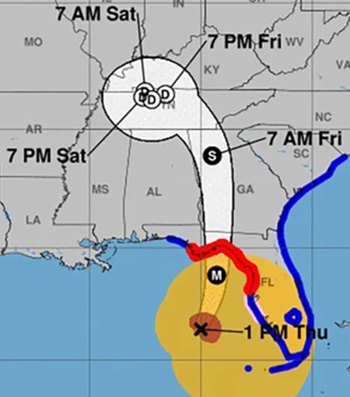 Hurricane Helene’s wide and destructive wind field was moving along the Gulf Coast of Florida southwest of Tampa on Thursday morning and is expected to rapidly intensify on a direct path for the state’s Big Bend region, where it could pose “a nightmare surge scenario for Apalachee Bay,” according to the National Weather Service. The state’s capital, Tallahassee, is just east of the direct path of Helene, which reached Category 2 strength Thursday and is expected to grow into a major Category 3 storm before making landfall late Thursday or early Friday morning. Forecasters said Helene will intensify further than previously forecast, predicting 130 mph winds before landfall. “This forecast, if realized, is a nightmare surge scenario for Apalachee Bay,” the National Weather Service office said. “Please, please, please take any evacuation orders seriously!” Photos, more, >>CLICK TO READ<< 14:29
Hurricane Helene’s wide and destructive wind field was moving along the Gulf Coast of Florida southwest of Tampa on Thursday morning and is expected to rapidly intensify on a direct path for the state’s Big Bend region, where it could pose “a nightmare surge scenario for Apalachee Bay,” according to the National Weather Service. The state’s capital, Tallahassee, is just east of the direct path of Helene, which reached Category 2 strength Thursday and is expected to grow into a major Category 3 storm before making landfall late Thursday or early Friday morning. Forecasters said Helene will intensify further than previously forecast, predicting 130 mph winds before landfall. “This forecast, if realized, is a nightmare surge scenario for Apalachee Bay,” the National Weather Service office said. “Please, please, please take any evacuation orders seriously!” Photos, more, >>CLICK TO READ<< 14:29
Live updates: Helene strengthening, now forecast to hit Florida as Category 4 hurricane
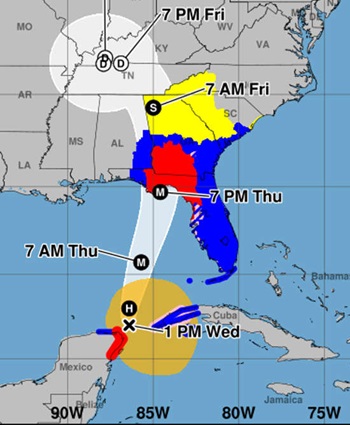 Helene became a hurricane late Wednesday morning and is rapidly strengthening. The storm is forecast to barrel into Florida’s Gulf Coast as a monster Category 4 hurricane with up to 132-mph winds Thursday, according to the National Hurricane Center. Hurricane Helene is expected to intensify and grow rapidly over the Gulf of Mexico before slamming into Florida’s Gulf Coast. According to AccuWeather forecasters, the highest landfall probability is “somewhere along the eastern part of the Florida Panhandle–perhaps in the Big Bend area–late Thursday evening.” However, an earlier landfall over the Florida Peninsula is possible if Helene tracks farther to the southeast, forecasters said. There is a danger of life-threatening storm surge along the entire west coast of Florida and Florida’s Big Bend, the NHC reported. The highest inundation levels and potentially catastrophic hurricane-force winds are expected along the Big Bend coast. Video, lots of images, more, >>CLICK TO READ<< 19:06 Stay safe!
Helene became a hurricane late Wednesday morning and is rapidly strengthening. The storm is forecast to barrel into Florida’s Gulf Coast as a monster Category 4 hurricane with up to 132-mph winds Thursday, according to the National Hurricane Center. Hurricane Helene is expected to intensify and grow rapidly over the Gulf of Mexico before slamming into Florida’s Gulf Coast. According to AccuWeather forecasters, the highest landfall probability is “somewhere along the eastern part of the Florida Panhandle–perhaps in the Big Bend area–late Thursday evening.” However, an earlier landfall over the Florida Peninsula is possible if Helene tracks farther to the southeast, forecasters said. There is a danger of life-threatening storm surge along the entire west coast of Florida and Florida’s Big Bend, the NHC reported. The highest inundation levels and potentially catastrophic hurricane-force winds are expected along the Big Bend coast. Video, lots of images, more, >>CLICK TO READ<< 19:06 Stay safe!
Big Fish Offshore Wind Producers Catch Attention Of Texas Fishermen
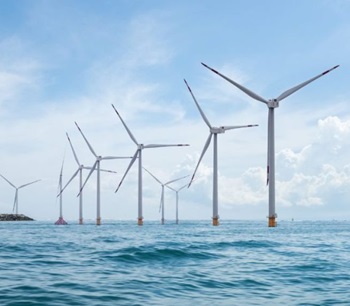 There is a fight on the open seas in Texas’ Gulf, not between sailors and pirates but between two of America’s most ambitious offshore wind producers. BlackRock-backed RWE Offshore US Gulf LLC recently asked the Bureau of Ocean Energy Management (BOEM) to pressure its competitor, Hecate Energy Gulf Wind LLC, to shell out big bucks to compensate Texas fishermen for potential damage to their fishing areas. “RWE urges BOEM to consider including an option for Hecate Energy –- and any future unsolicited proposals in the Gulf of Mexico — to commit funding for a Fisheries Compensatory Mitigation Fund,” the company recently said during a public comment period on a developing offshore wind project in south Texas. RWE also encouraged BOEM to require Hecate to develop a communication plan with fisheries and tribal governments. Texas’ fishing industry vigorously opposes RWE’s offshore wind projects, such as GOM WEA Option M near the TX-LA border. more, >>CLICK TO READ<< 16:14
There is a fight on the open seas in Texas’ Gulf, not between sailors and pirates but between two of America’s most ambitious offshore wind producers. BlackRock-backed RWE Offshore US Gulf LLC recently asked the Bureau of Ocean Energy Management (BOEM) to pressure its competitor, Hecate Energy Gulf Wind LLC, to shell out big bucks to compensate Texas fishermen for potential damage to their fishing areas. “RWE urges BOEM to consider including an option for Hecate Energy –- and any future unsolicited proposals in the Gulf of Mexico — to commit funding for a Fisheries Compensatory Mitigation Fund,” the company recently said during a public comment period on a developing offshore wind project in south Texas. RWE also encouraged BOEM to require Hecate to develop a communication plan with fisheries and tribal governments. Texas’ fishing industry vigorously opposes RWE’s offshore wind projects, such as GOM WEA Option M near the TX-LA border. more, >>CLICK TO READ<< 16:14
Hurricane Francine is predicted to make landfall west of New Orleans
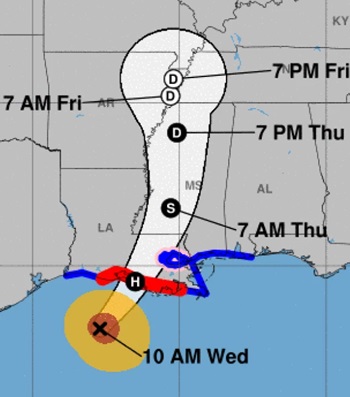 Hurricane Francine is crossing over warm waters in the western Gulf of Mexico, and it has Louisiana’s coast — and the greater New Orleans area — in its sights, according to the National Hurricane Center’s latest forecast. The storm became a hurricane Tuesday night; its maximum sustained winds are now topping 90 mph. As of 10 a.m. CT, Francine was about 150 miles southwest of Morgan City, La., moving northeast at 13 mph. “Francine is anticipated to make landfall in Louisiana … late this afternoon or evening,” the hurricane center said on Wednesday. If the storm surge coincides with high tide, water could reach 5 to 10 feet above ground in areas from Louisiana’s Intracoastal City and Vermilion Bay to Port Fourchon. The hurricane’s outer bands of rain began hitting Lafayette, Baton Rouge and other areas in southern Louisiana Wednesday morning. In the gulf, an oil platform north of the center recently reported a peak gust of 105 mph, the NHC said. more, >>CLICK TO READ<< 14:21
Hurricane Francine is crossing over warm waters in the western Gulf of Mexico, and it has Louisiana’s coast — and the greater New Orleans area — in its sights, according to the National Hurricane Center’s latest forecast. The storm became a hurricane Tuesday night; its maximum sustained winds are now topping 90 mph. As of 10 a.m. CT, Francine was about 150 miles southwest of Morgan City, La., moving northeast at 13 mph. “Francine is anticipated to make landfall in Louisiana … late this afternoon or evening,” the hurricane center said on Wednesday. If the storm surge coincides with high tide, water could reach 5 to 10 feet above ground in areas from Louisiana’s Intracoastal City and Vermilion Bay to Port Fourchon. The hurricane’s outer bands of rain began hitting Lafayette, Baton Rouge and other areas in southern Louisiana Wednesday morning. In the gulf, an oil platform north of the center recently reported a peak gust of 105 mph, the NHC said. more, >>CLICK TO READ<< 14:21
Shrimply the best: Discover Alabama’s shrimp industry
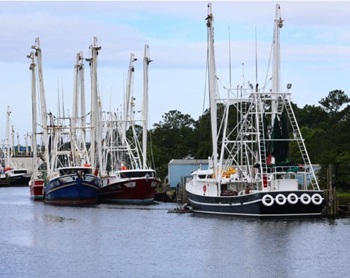 As Bubba Blue famously said in “Forrest Gump,” shrimp is the fruit of the sea. Whether you like it barbecued, boiled, broiled, baked or sautéed, this small creature sure makes a big impact in Alabama. The shrimp industry in Alabama consists of both wild-caught and farm-raised species. Alabama waters are home to between 15 and 22 wild shrimp species. However, only three of these are commercially caught: brown, white and pink. On inland farms, Luke Roy, an Alabama Extension aquatic resources Extension professor, said farmers often raise Pacific white shrimp. “Pacific white shrimp are not native to the Gulf of Mexico, and they are the species of choice by most producers,” Roy said. “They are desirable because of their tolerance for low-salinity water. They also have a desirable feed conversion ratio and the ability to be cultured at high densities with low aggression.” Photos, more, >>CLICK TO READ<< 06:22
As Bubba Blue famously said in “Forrest Gump,” shrimp is the fruit of the sea. Whether you like it barbecued, boiled, broiled, baked or sautéed, this small creature sure makes a big impact in Alabama. The shrimp industry in Alabama consists of both wild-caught and farm-raised species. Alabama waters are home to between 15 and 22 wild shrimp species. However, only three of these are commercially caught: brown, white and pink. On inland farms, Luke Roy, an Alabama Extension aquatic resources Extension professor, said farmers often raise Pacific white shrimp. “Pacific white shrimp are not native to the Gulf of Mexico, and they are the species of choice by most producers,” Roy said. “They are desirable because of their tolerance for low-salinity water. They also have a desirable feed conversion ratio and the ability to be cultured at high densities with low aggression.” Photos, more, >>CLICK TO READ<< 06:22
UPDATE: Tropical Storm Debby to Bring Major Flooding to Southeast After Florida Landfall
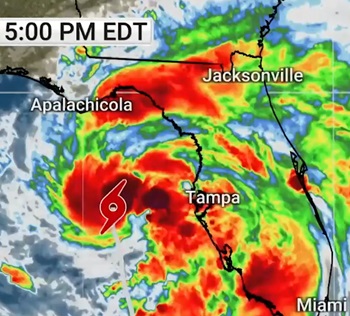 Tropical Storm Debby could bring historically heavy rainfall, gusty winds and a few tornadoes, from north Florida to coastal South Carolina after making landfall in Florida’s Big Bend region Monday. Flash flooding is the number one concern with Debby. NOAA has issued their highest level of flood outlook for both Monday and Tuesday, shown in pink on the maps below. These areas will likely experience damaging flooding and could experience life-threatening flooding. Debby will also bring gusty winds, coastal flooding and a few tornadoes across the Florida Peninsula Sunday and then along the Southeast coast early in the coming week, where it could slow down or even stall, prolonging impacts. Here’s where watches and warnings are in effect: A hurricane warning is in effect for the Florida Big Bend region from the Suwannee River to Indian Pass. more, >>CLICK TO READ<< 19:56
Tropical Storm Debby could bring historically heavy rainfall, gusty winds and a few tornadoes, from north Florida to coastal South Carolina after making landfall in Florida’s Big Bend region Monday. Flash flooding is the number one concern with Debby. NOAA has issued their highest level of flood outlook for both Monday and Tuesday, shown in pink on the maps below. These areas will likely experience damaging flooding and could experience life-threatening flooding. Debby will also bring gusty winds, coastal flooding and a few tornadoes across the Florida Peninsula Sunday and then along the Southeast coast early in the coming week, where it could slow down or even stall, prolonging impacts. Here’s where watches and warnings are in effect: A hurricane warning is in effect for the Florida Big Bend region from the Suwannee River to Indian Pass. more, >>CLICK TO READ<< 19:56
Tropical Storm Debby timeline: When could it become hurricane, make landfall?
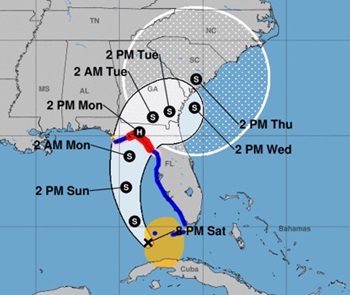 Tropical Storm Debby officially formed Saturday afternoon, making it the fourth named storm of the 2024 Atlantic hurricane season, according to the National Hurricane Center. Forecasters believe Tropical Storm Debby could be ‘at or near hurricane’ strength as it approaches the Florida coast before landfall, according to the 5 p.m. advisory. A timeline has been established for when the eye of what is now known as Tropical Storm Debby could impact Florida over the weekend and into early next week. On Saturday, the NHC issued a hurricane watch and warning for portions of Florida’s Gulf Coast. more, >>CLICK TO READ<< 07:32
Tropical Storm Debby officially formed Saturday afternoon, making it the fourth named storm of the 2024 Atlantic hurricane season, according to the National Hurricane Center. Forecasters believe Tropical Storm Debby could be ‘at or near hurricane’ strength as it approaches the Florida coast before landfall, according to the 5 p.m. advisory. A timeline has been established for when the eye of what is now known as Tropical Storm Debby could impact Florida over the weekend and into early next week. On Saturday, the NHC issued a hurricane watch and warning for portions of Florida’s Gulf Coast. more, >>CLICK TO READ<< 07:32
U.S. Gulf of Mexico Shrimp Fishery Achieves RFM Certification
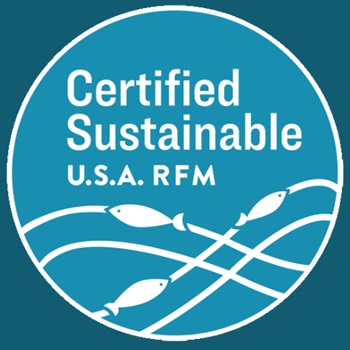 The Certified Seafood Collaborative (CSC) is pleased to announce that the U.S. Gulf of Mexico shrimp fishery (white, brown, and pink shrimp) for all five Gulf states and federal waters has achieved Responsible Fisheries Management (RFM) Certification. This is the first shrimp fishery certified to the RFM Standard. RFM Certification requires fisheries meet RFM Standard criteria which evaluate fisheries in four key areas: A) the fisheries management system; B) science and stock assessment activities, and the precautionary approach; C) management measures, implementation, monitoring, and control; and D) serious impacts of the fishery on the ecosystem. Third-party certification body Global Trust awarded the certification after a thorough evaluation of the Gulf of Mexico Shrimp fishery as reported in the Final Assessment Report. more, >>CLICK TO READ<< 06:16
The Certified Seafood Collaborative (CSC) is pleased to announce that the U.S. Gulf of Mexico shrimp fishery (white, brown, and pink shrimp) for all five Gulf states and federal waters has achieved Responsible Fisheries Management (RFM) Certification. This is the first shrimp fishery certified to the RFM Standard. RFM Certification requires fisheries meet RFM Standard criteria which evaluate fisheries in four key areas: A) the fisheries management system; B) science and stock assessment activities, and the precautionary approach; C) management measures, implementation, monitoring, and control; and D) serious impacts of the fishery on the ecosystem. Third-party certification body Global Trust awarded the certification after a thorough evaluation of the Gulf of Mexico Shrimp fishery as reported in the Final Assessment Report. more, >>CLICK TO READ<< 06:16
Shrimp season reopens in the Gulf of Mexico, Aransas Pass fleet heads that way
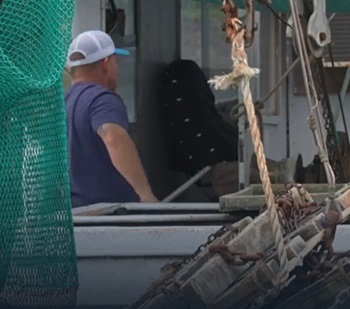 Shrimp season is back in full swing at Conn Brown Harbor now that state and federal waters have reopened to commercial shrimping. It’s a busy time for shrimpers after being closed for over two months. “Boats are coming out of Palacios, Aransas Pass, Brownsville, Galveston. All the different ports,” Aransas Pass local Cecil Robles said. An armada of shrimp boats is off to the Gulf of Mexico, hoping to fill their nets with tiny treasures. Robles works at Conn Brown Harbor, where he fuels shrimp boats for Erickson and Jensen seafood packers. “The next few days, we’ll start to hear from them about what they’re catching and how abundant the fish are,” Robles said. Video, more, >>CLICK TO READ<< 10:59
Shrimp season is back in full swing at Conn Brown Harbor now that state and federal waters have reopened to commercial shrimping. It’s a busy time for shrimpers after being closed for over two months. “Boats are coming out of Palacios, Aransas Pass, Brownsville, Galveston. All the different ports,” Aransas Pass local Cecil Robles said. An armada of shrimp boats is off to the Gulf of Mexico, hoping to fill their nets with tiny treasures. Robles works at Conn Brown Harbor, where he fuels shrimp boats for Erickson and Jensen seafood packers. “The next few days, we’ll start to hear from them about what they’re catching and how abundant the fish are,” Robles said. Video, more, >>CLICK TO READ<< 10:59
This Florida fisherman worries about the industry’s future
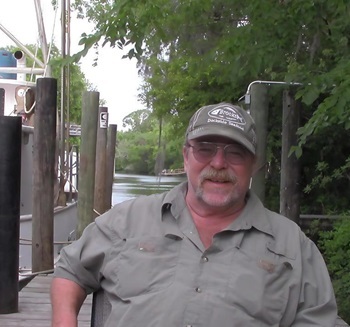 Commercial fishing is vital to Florida’s culture and identity. Today, Florida fishermen like me land $209 million worth of fish and shellfish in dock-side value alone. The economic impact of the commercial fishing industry ripples up the supply chain generating $8.7 billion. Hundreds of millions of tourists travel to Florida to enjoy fresh seafood in the Sunshine State. The National Marine Fisheries Service (NMFS) “Status of the Stocks” report that was recently released would have you believe that everything is rosy. But let me tell you what’s really happening – what you don’t see in that federal report – from the perspective and experience of someone who makes a living on the water in the Gulf of Mexico. more, >>CLICK TO READ<< 07:29
Commercial fishing is vital to Florida’s culture and identity. Today, Florida fishermen like me land $209 million worth of fish and shellfish in dock-side value alone. The economic impact of the commercial fishing industry ripples up the supply chain generating $8.7 billion. Hundreds of millions of tourists travel to Florida to enjoy fresh seafood in the Sunshine State. The National Marine Fisheries Service (NMFS) “Status of the Stocks” report that was recently released would have you believe that everything is rosy. But let me tell you what’s really happening – what you don’t see in that federal report – from the perspective and experience of someone who makes a living on the water in the Gulf of Mexico. more, >>CLICK TO READ<< 07:29
Celebrating National Shrimp Day on the Northern Gulf Coast
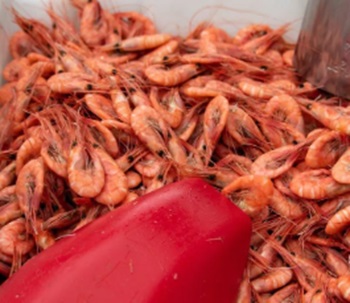 May 10th marks National Shrimp Day. For the Northern Gulf Coast, which includes the shores of Texas, Louisiana, Mississippi, Alabama, and Florida, shrimp holds a special significance as a source of food, economic growth, and cultural heritage. The warm, nutrient-rich waters of the Gulf of Mexico provide an ideal environment for shrimp to thrive, making the Northern Gulf Coast one of the most productive shrimping regions in the world. The area is home to four main commercial shrimp species: white shrimp, brown shrimp, pink shrimp, and Royal Red Shrimp. These shrimps are known for their unique flavors and textures, with Royal Red Shrimp being a highly prized delicacy. more, >>CLICK TO READ<< 09:18
May 10th marks National Shrimp Day. For the Northern Gulf Coast, which includes the shores of Texas, Louisiana, Mississippi, Alabama, and Florida, shrimp holds a special significance as a source of food, economic growth, and cultural heritage. The warm, nutrient-rich waters of the Gulf of Mexico provide an ideal environment for shrimp to thrive, making the Northern Gulf Coast one of the most productive shrimping regions in the world. The area is home to four main commercial shrimp species: white shrimp, brown shrimp, pink shrimp, and Royal Red Shrimp. These shrimps are known for their unique flavors and textures, with Royal Red Shrimp being a highly prized delicacy. more, >>CLICK TO READ<< 09:18
Biden administration plans to tee up offshore wind across the nation’s coastlines
 The Biden administration is planning to boost offshore wind energy production, announcing up to a dozen opportunities for industry to bid on chances to build wind turbines in U.S. oceans over the next five years. Interior Secretary Deb Haaland is slated to announce the lease sales at a conference in New Orleans. The 12 potential opportunities Haaland is announcing include sales in the central Atlantic Ocean, Gulf of Maine, Gulf of Mexico, the New York Bight and off the coast of Oregon, California, Hawaii and a yet-to-be-determined U.S. territory. These sales were described as potential sales that could occur rather than ones definitely slated to happen, and if former President Trump wins election, he may want to cancel them. more, >>CLICK TO READ<< 14:56
The Biden administration is planning to boost offshore wind energy production, announcing up to a dozen opportunities for industry to bid on chances to build wind turbines in U.S. oceans over the next five years. Interior Secretary Deb Haaland is slated to announce the lease sales at a conference in New Orleans. The 12 potential opportunities Haaland is announcing include sales in the central Atlantic Ocean, Gulf of Maine, Gulf of Mexico, the New York Bight and off the coast of Oregon, California, Hawaii and a yet-to-be-determined U.S. territory. These sales were described as potential sales that could occur rather than ones definitely slated to happen, and if former President Trump wins election, he may want to cancel them. more, >>CLICK TO READ<< 14:56
From Bubba Gump to bust? American shrimpers face extinction.
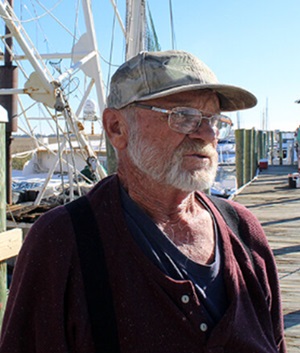 On a chilly December morning, the captain of the Miss Patti is ready to throw his lines and go shrimping – well, almost. Brian Jordan’s deckhand is in a foul mood, and it’s no wonder why. Is any of this worth it? Here on the tiny working waterfront of Tybee Island, Georgia, the hesitancy is logical. Shrimp prices cratered this year, and hundreds of boats from Brownsville, Texas, to Harkers Island, North Carolina, remained dockside. The problem hasn’t been a lack of shrimp or the price of diesel. Instead, freezers across the United States are filled to the gills. A glut of imported shrimp has dropped the price to about half of what shrimp boats received in the 1980s. At stake is the livelihood of Mr. Jordan and shrimpers like him nationwide. They can’t compete with overseas rivals who raise and harvest shrimp in lower-cost “aquaculture’’ farms. more, >>click to read<< 13:06
On a chilly December morning, the captain of the Miss Patti is ready to throw his lines and go shrimping – well, almost. Brian Jordan’s deckhand is in a foul mood, and it’s no wonder why. Is any of this worth it? Here on the tiny working waterfront of Tybee Island, Georgia, the hesitancy is logical. Shrimp prices cratered this year, and hundreds of boats from Brownsville, Texas, to Harkers Island, North Carolina, remained dockside. The problem hasn’t been a lack of shrimp or the price of diesel. Instead, freezers across the United States are filled to the gills. A glut of imported shrimp has dropped the price to about half of what shrimp boats received in the 1980s. At stake is the livelihood of Mr. Jordan and shrimpers like him nationwide. They can’t compete with overseas rivals who raise and harvest shrimp in lower-cost “aquaculture’’ farms. more, >>click to read<< 13:06
Louisiana pogy industry faces backlash as reports show more massive fish spills
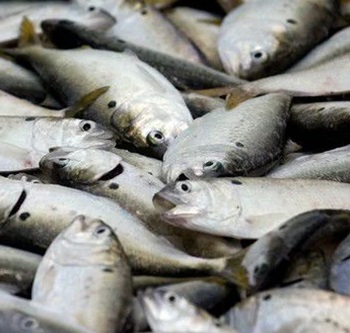 When a menhaden ‘mothership’ and its net boats spilled a million fish and left the floating mass to rot off the Louisiana coast, the menhaden industry attempted to ease public outrage and calls for tougher fishing rules with assurances that such incidents hardly ever happen. Nine million wasted fish might seem like a lot, but not when compared with the overall menhaden population, which is immense and shows no signs of decline, said Ben Landry, a spokesperson for Omega. “Sounds like Chicken Little to me,” he said. “This is a fish that numbers more than 100 billion in the Gulf. And there’s concern for 9 million fish? That’s a bit hyperbolic.” photos, more, >>click to read<< 11:48
When a menhaden ‘mothership’ and its net boats spilled a million fish and left the floating mass to rot off the Louisiana coast, the menhaden industry attempted to ease public outrage and calls for tougher fishing rules with assurances that such incidents hardly ever happen. Nine million wasted fish might seem like a lot, but not when compared with the overall menhaden population, which is immense and shows no signs of decline, said Ben Landry, a spokesperson for Omega. “Sounds like Chicken Little to me,” he said. “This is a fish that numbers more than 100 billion in the Gulf. And there’s concern for 9 million fish? That’s a bit hyperbolic.” photos, more, >>click to read<< 11:48
Pushing pogy boats farther from Louisiana coast could dampen profits, kill jobs, report warns
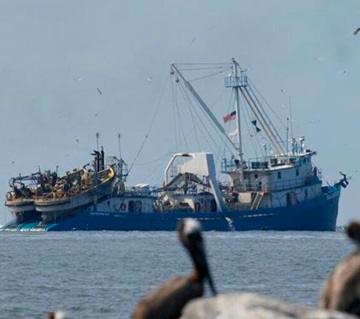 Pushing commercial menhaden fishing farther off the Louisiana coast may appease anglers and conservationists, but it would come at a heavy cost to the industry, according to a new report from state economists. The two companies operating what amounts to Louisiana’s largest fishery could lose about $31 million per year and shed up to 90 jobs if the state approves a plan to restrict menhaden fishing within a mile of the coast, an economic impact report by the state Department of Wildlife and Fisheries says. But the report’s lead author stressed that the industry could recoup some losses by fishing in deeper water. “They’d likely adjust practices,” Fish and Wildlife economist Jack Issacs said. “They’d make adjustments to counteract (the restrictions). The menhaden industry would likely take more trips offshore or concentrate more harvesting outside the mile-wide buffer.” Photos, more, >>click to read<< 12:38
Pushing commercial menhaden fishing farther off the Louisiana coast may appease anglers and conservationists, but it would come at a heavy cost to the industry, according to a new report from state economists. The two companies operating what amounts to Louisiana’s largest fishery could lose about $31 million per year and shed up to 90 jobs if the state approves a plan to restrict menhaden fishing within a mile of the coast, an economic impact report by the state Department of Wildlife and Fisheries says. But the report’s lead author stressed that the industry could recoup some losses by fishing in deeper water. “They’d likely adjust practices,” Fish and Wildlife economist Jack Issacs said. “They’d make adjustments to counteract (the restrictions). The menhaden industry would likely take more trips offshore or concentrate more harvesting outside the mile-wide buffer.” Photos, more, >>click to read<< 12:38
Seeking Shrimpers to Help Modernize Data Collection
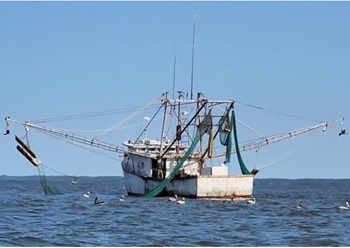 NOAA Fisheries and the Gulf States Marine Fisheries Commission are encouraging the early adoption of a new system to update the data collection process for Gulf of Mexico shrimping effort. The new system will greatly increase the quality and efficiency of data collected to describe the Gulf shrimp commercial fleet and reduce burden on the shrimping industry. The new devices are now available at no cost for a limited number of participants. The program will cover the cost for a limited number of cellular vessel monitoring system units, installation and maintenance, and 2 years of cellular service for the new device. We are seeking volunteers for this early adopter program through September 2024.Support through the early adopter program is available on a first come, first serve basis. more, >>click to read<< 07:53
NOAA Fisheries and the Gulf States Marine Fisheries Commission are encouraging the early adoption of a new system to update the data collection process for Gulf of Mexico shrimping effort. The new system will greatly increase the quality and efficiency of data collected to describe the Gulf shrimp commercial fleet and reduce burden on the shrimping industry. The new devices are now available at no cost for a limited number of participants. The program will cover the cost for a limited number of cellular vessel monitoring system units, installation and maintenance, and 2 years of cellular service for the new device. We are seeking volunteers for this early adopter program through September 2024.Support through the early adopter program is available on a first come, first serve basis. more, >>click to read<< 07:53






